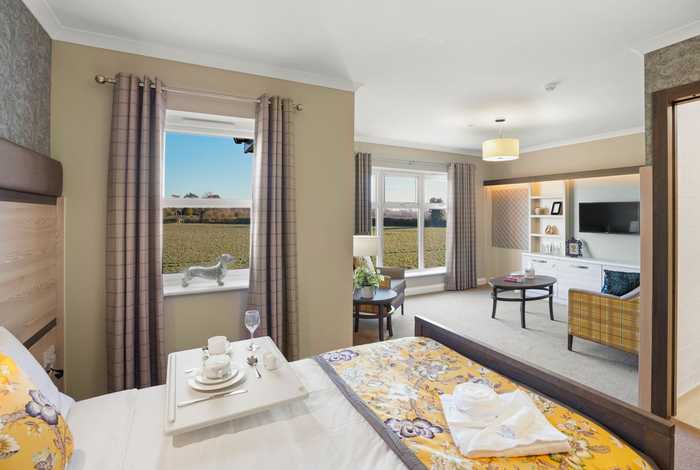Posted by Rob King
“How do I find the best care home near me?” and answers to other elderly care questions.
Over the past ten years Autumna has been asked a lot of different questions about elderly care from people who have struggled to find the answers online.
It’s one of the reasons why we set up our directory of over 29,000 care providers across the UK. We wanted to provide an easy-to-navigate, easy-to-compare platform that encouraged care home, home care and live-in care agencies to post more of the information that people so desperately need, when making these big decisions about their later life care.
What follows are some of the more frequently asked questions we get, and hopefully, some helpful answers.
For many people, looking for elderly care is not a task they will have undertaken before, or will need to get involved in, more than once or twice in their lives. So, it’s not surprising that many of the callers to our advice line are absolutely in the dark about how to even start looking for elderly care.
Some of these questions therefore might seem very basic, but in truth, many people have come to us, not knowing the answer.
So, let’s begin with the question in the title of the blog: “Where is the best care home near me?” The slight variation on this question at the moment, as we emerge from the coronavirus lockdown is, “Where is the safest care home near me?” That though is a whole separate subject matter and is dealt with, to some extent in our previous blog.
To answer the question, “Where is the best care home near me?” you would probably first have to refine your search according to what sort of care you need. And, knowing that, you might even want to ask, “What are the alternatives to a care home?”
So, what seemed like a simple question, has all become a bit ‘chicken and egg.’
Maybe if we approach it with an answer to this question?
“How do I choose a care home?”
We believe there are generally four key things you need to consider when choosing a care home.
The first is location.
A lot of people get this wrong. We get so many calls from sons and daughters who assume that the best home for their elderly mum or dad will be near the place where they already live. This sometimes means they’re travelling hundreds of miles a week for a brief visit.
The ‘me’ therefore, in “Where is the best care home near me?” needs to be the person who is most likely to visit.
The second thing you need to do when choosing a care home is to understand really clearly what type of care home you're looking for.
Many people come to us not knowing that there is a difference between a residential home and a nursing home. The difference is very simple:
- A nursing home has nurses on site. So, if you need nursing care, and you need nurses to look after you or your elderly relative, it is a nursing home you're looking for.
- A residential care home can offer a lot of support medically, but they won't be registered by the Care Quality Commission to provide nursing care.
Both types of homes might offer help for people living with dementia. However, this will depend on the level and type of dementia the person going into the home has now and might develop in the future.
A move from one care home to another is never easy, so we would always say, try to ‘future-proof’ any care home that you're looking for.
Thirdly. How much is the care home going to cost? You need to make sure it’s within your price range now - and going forwards.
If you run out of money after six or nine months, and the care home asks you to leave, then you've chosen the wrong care home.
Fourth. Does the home have availability now? How quickly do you need that care home? In our experience, most of our calls come from people in a crisis situation, and they need somewhere for their elderly relative to go immediately.
Invariably this means their choices are limited, and so the ‘best care home near me’ becomes ‘the best care home, that has a vacancy right now, near me.’
If you can forward plan, even if it’s just by 2 or 3 weeks, you will have a wider choice. The bottom line though, is you need to understand what you're looking for and make sure you do your research.
“What is the average cost of a nursing home?”
At the time of writing (May 2020), the average weekly cost of a nursing home in the U.K. is £750. The average cost of a residential home in the U.K. is £550.
And then the question we get asked a lot…
“How can I avoid selling my house to pay for care?”
If you have assets above £23,250, including your house, and if you're living alone, then you will need to pay for your own care. If you try to avoid selling your house to raise the money to pay for your later life care, this is called ‘deprivation of assets’ and you cannot do it.
However, there are a number of different financial products available to help pay care fees, and at Autumna we partner with Eldercare Solutions, a SOLLA (Society of Later Life Advisers) accredited group, who can provide expert advice in this area.
“Does a person living with dementia have to pay for their elderly care?”
Yes, they do.
This is because dementia has not been classified as an illness that the NHS will cover, in the same way as, for example, cancer has.
So again, it comes down to what assets the person living with dementia has. In England, if they have assets, including their house, if they live alone, above £23,250, they will be expected to pay for their elderly dementia care.
If they have less than that, the local authority will support them on a pro rata basis.
“What is a top up fee?”
If your care is funded by the local authority, the amount they will pay might not be enough to cover the fees in many care homes.
However, a third party, usually but not necessarily, a relative, can ‘top up’ the amount that the local authority is prepared to pay, which might give the person who needs the elderly care, a wider choice over which care home they go into.
“What are the alternatives to a care home?”
We’re getting asked this question a lot during the coronavirus outbreak. The two main alternatives are home care and live in care.
Home care is a carer coming into your home for maybe 30 minutes, or an hour, or two hours. They can come in once a day, once a week, four times a day. They're there to support you or your elderly relative, in whatever level of support is needed.
Live-in-care is when somebody comes and lives with the person who needs care in their own home. They will stay there with them throughout the day and night.
Live-in care especially, seems to be gaining in popularity during the current pandemic, as the evidence seems to point to a very low infection rate associated with the service.
The downside is that Live in care is generally at the upper end of the scale in terms of price. Actual costs charged tend to be on a par with care homes. The difference though, is that with care homes, costs such as food, council tax and utilities are all included in the price. With live-in care these costs still apply.
“Is home care less expensive than a nursing home?”
This is a tricky question to answer. Home care is charged by the hour, whereas a nursing home will charge by the week.
If you, or your elderly parent or relative, have nursing needs, and you need a nurse 24/7 to support you at home, then it will generally be more expensive.
If you're in a care home that offers nursing care, then the overall cost, because you will be receiving 24/7 care, is likely to be less expensive - the nurses will be there 24/7 but they will obviously be able to attend to the needs of more people.
So, it really depends on how many hours the nursing care is needed for, as to which one is the cheaper option.
“How else can Autumna help in my search for elderly care providers?”
They are presented in an easy-to-navigate, easily accessible way and include basic filters covering location, type of care offered, price and current availability. You can also search for care homes that are rated “Outstanding” by the Care Quality Commission (CQC).
Having made that initial search, you can then dig deeper with Autumna’s extended filters, which will allow you to search for care providers who allow pets, have secure gardens, extensive activities programmes, are situated on bus routes - in fact at least another 200 variations on a theme.
Most importantly, if you are paying for your later life care, you have a choice over how and where you spend your latter days, and Autumna will focus your search and help you find the answer, not only to the question, “What is the best care home near me?” but also, “What is the best home care agency near me?” and, “What is the best live-in care agency near me?”
For more help finding elderly care, visit our various detailed advice pages, or ring our friendly team of experts on 01892 33 53 30.
Other articles to read
Autumna Blog

Older Persons Care Advice
Ultimate guide to care homes in Norwich
April 23rd, 2025
Discover the best care homes in Norwich—explore lifestyle-focused options, top-rated services, and how to choose the right home with confidence.

Older Persons Care Advice
How to find an adult day care centre near you
April 22nd, 2025
Looking for an adult day care centre near you? Discover how to find safe, joyful care for your loved one—and support for yourself—on Autumna.

Older Persons Care Advice
How to shortlist care homes in Exeter
April 17th, 2025
Need help shortlisting care homes in Exeter? Learn how to filter options with confidence, compare homes, and find the best fit with Autumna’s free tools.






